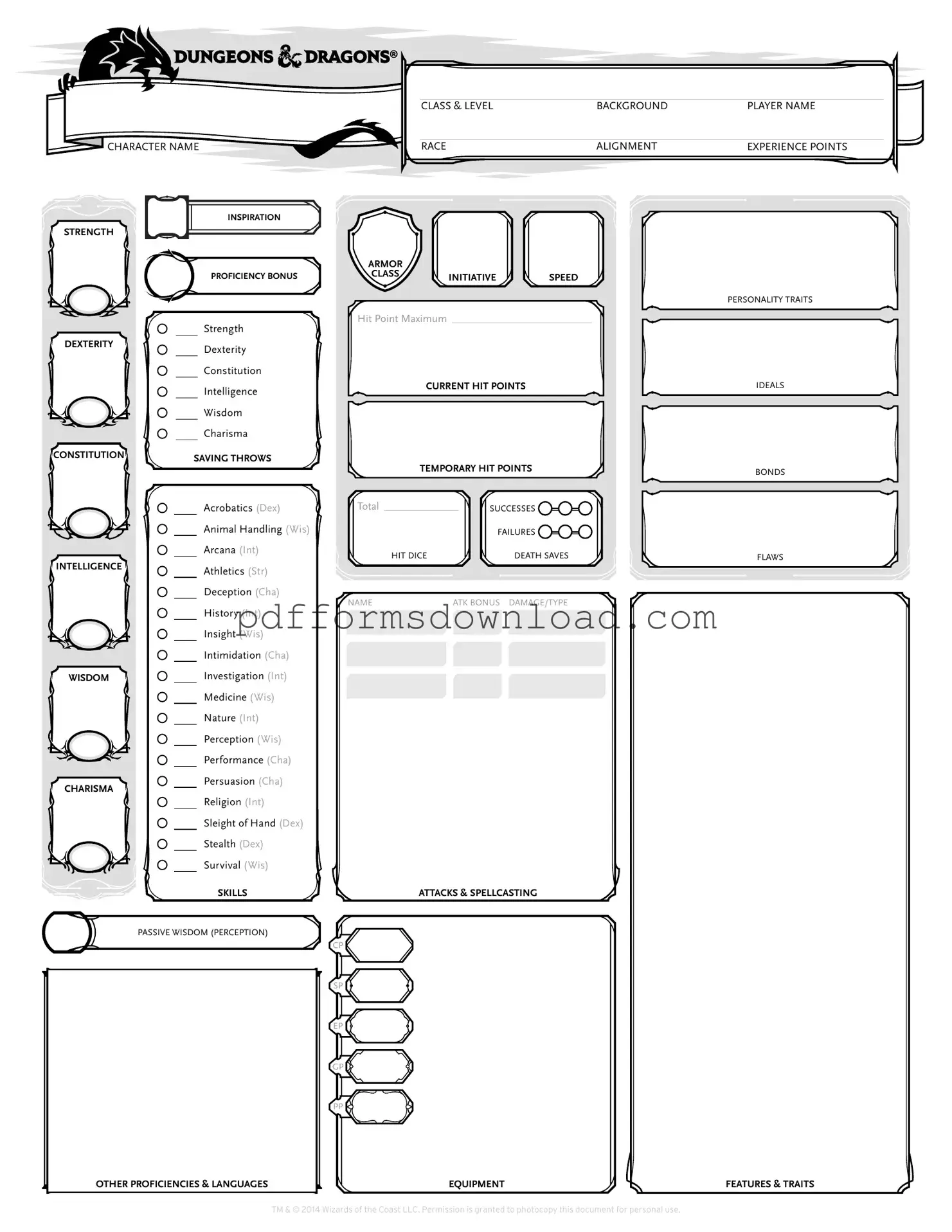What is a DnD Character Sheet?
A DnD Character Sheet is a tool used by players in Dungeons & Dragons to keep track of their character's abilities, skills, and progress throughout the game. It serves as a comprehensive record that includes essential information such as character name, race, class, background, and stats like strength and intelligence. This sheet helps players visualize their character's journey and make decisions during gameplay.
How do I fill out a DnD Character Sheet?
Filling out a DnD Character Sheet can be an exciting process. Start by choosing your character's race and class, as these will influence your abilities and skills. Next, roll for or assign your ability scores, which represent your character's strengths and weaknesses. After that, add details like your character's background, alignment, and equipment. Don’t forget to keep track of hit points and any special features your character may have. If you need help, many resources and guides are available online to assist you.
Can I customize my DnD Character Sheet?
Absolutely! Customization is one of the joys of creating a character in Dungeons & Dragons. You can choose different layouts, colors, or even create your own sheet from scratch. Some players prefer digital sheets that allow for easy editing, while others enjoy the tactile experience of filling out a paper sheet. Just ensure that all essential information is included, so you have everything you need during your sessions.
What should I do if I make a mistake on my Character Sheet?
Making mistakes is a normal part of the process. If you’re using a paper sheet, simply cross out the incorrect information and write the correct details nearby. For digital sheets, you can easily edit the text. If the mistake affects your character’s stats or abilities, double-check to ensure everything else aligns correctly. Remember, your Dungeon Master can also help clarify any confusion.
How often should I update my DnD Character Sheet?
Updating your DnD Character Sheet is crucial, especially after significant events in the game. Each time your character levels up, gains new abilities, or acquires new items, you should reflect those changes on your sheet. Additionally, if your character experiences any major story developments or shifts in alignment, make those updates too. Keeping your sheet current ensures you have an accurate representation of your character at all times.

